- Home
- Occupational Therapy
- Teach Personal Information
Teach Personal Information to Prepare Your Child for an Emergency
It’s vitally important to teach personal information to prepare children in case they get lost or accidentally separated from you.
Because safety is so important, this is probably one of the first things you’ll want to teach them.
This may seem like an easy task, but for children with autism, it can be more of a challenge than you might think. You may have to do some things differently to help them learn this well.
It’s important to make sure they will not only know their personal information in an emergency, but also be able to give this information to people who can help them.
So the first thing you need to know is what to teach them.
What Personal Information to Teach
This may seem like a no-brainer, but children need to know their name, address and phone number.
I would suggest, however, that they should know their full name. My son has a very long full name, and I made sure I taught him the whole thing.
So if your child’s name is Mary Smith, you might want to teach her the middle name too.
I believe in giving a child what may be a little too much information in case it could really help in an emergency. And learning the name “Mary Ann Smith” probably isn’t much harder than learning “Mary Smith”.
We all know our children need to know their phone number, but these days most people have a home phone number, a work number and a cell number.
You have to decide whether to teach them all your phone numbers or only one.
I was concerned that my son would be confused if I taught him more than one number. I chose to teach him my cell number since I always have that phone with me. I wanted him to be able to reach me whether or not I am home.
But if your child can remember more than one phone number, I would teach all of them. I prefer teaching too much information rather than too little if possible.
I also recommend teaching their mother’s name and father’s name. If they ever get lost, it would be extremely helpful if they could recite or write their parents’ names.
You may also consider whether or not you should teach a sibling’s name. I thought it was important to teach my son his older brother’s name, just in case, since his brother is an adult.
But you should think about your own situation and decide if that’s important enough to teach it to your child.
I would want to teach my child just enough information that I think is necessary without overwhelming him with more to remember than he can handle.
How to Teach Personal Information
With nondisabled children, it’s pretty easy and straightforward to teach personal information.
You have them repeat it and write it down until they have memorized it.
You would do the same thing for a child with autism, but with some steps added to make sure they can remember and recite the information.
Here are a few principles to remember when teaching this information to an autistic child.
1. Teach One Thing at a Time
Small amounts of information are much easier to learn and remember than an overwhelming, large bunch of data. So, I suggest teaching one thing at a time.
If possible, try to make sure they have learned the first item before teaching the next. Then, once they have learned all the personal data that you want to teach them, you can test to see if they know it all.
2. Ask the Questions in Different Ways
When I taught this information to my son, I asked the questions in different ways. One day I might say, “What is your name?” The next day I might ask, “What’s your full name?”
When asking about his address I would say, “What is your address?” The next day, I would ask, “Where do you live?”
For a child with autism, it’s vitally important to do this. A nondisabled child will likely know automatically that both questions mean the same thing.
But if you don’t vary your questions, a child with autism may learn to answer “What is your address?” but be completely thrown off by “Where do you live?”
In an emergency, you don’t know how a police officer or other person trying to help might ask these questions. So, it's important to prepare your child in this way.
3. Have Them Give the Answers in Different Ways
I also recommend teaching children to say and write the answers to these questions if they can speak and write. It’s also a good idea to teach them to type these answers out as well. This will not only prepare them to answer the questions in a variety of ways, but it will also help them to better learn the information.
You can take this even further by having them write the answers in different ways. Have them write them on paper, on a dry erase board, on a chalkboard, or any other way you can think of.
Why do this? This can help them to generalize the information. Generalizing the information means teaching information in different ways to help ensure children will learn it and apply it to other situations. Children with autism usually need help generalizing things they have learned.
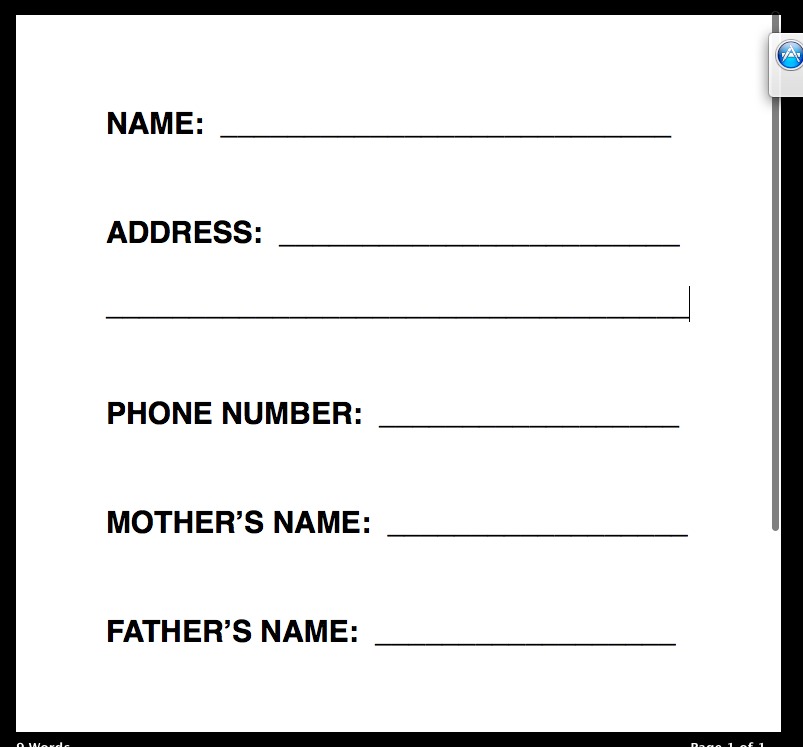 Form 1 Form 1 |
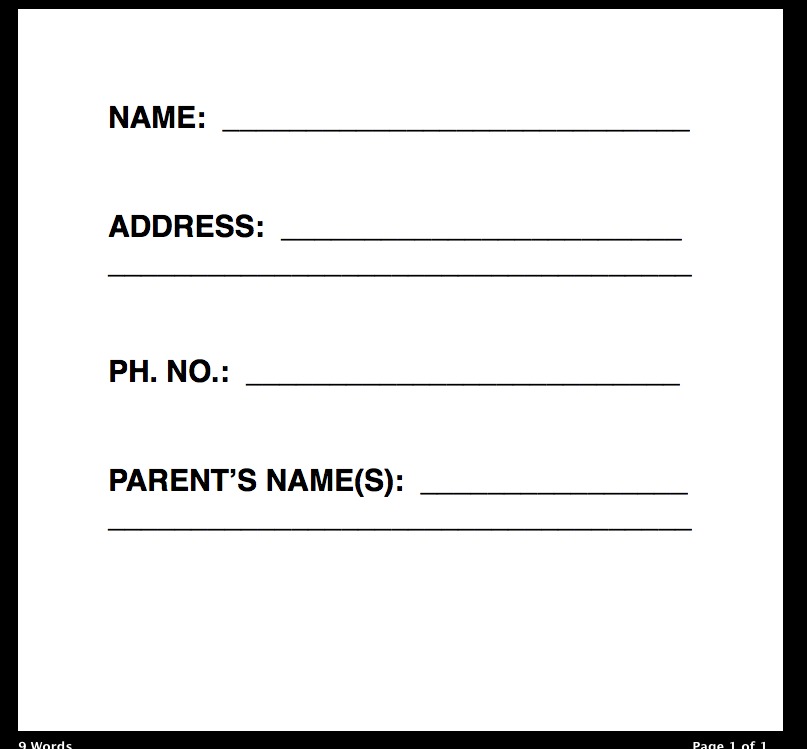 Form 2 Form 2 |
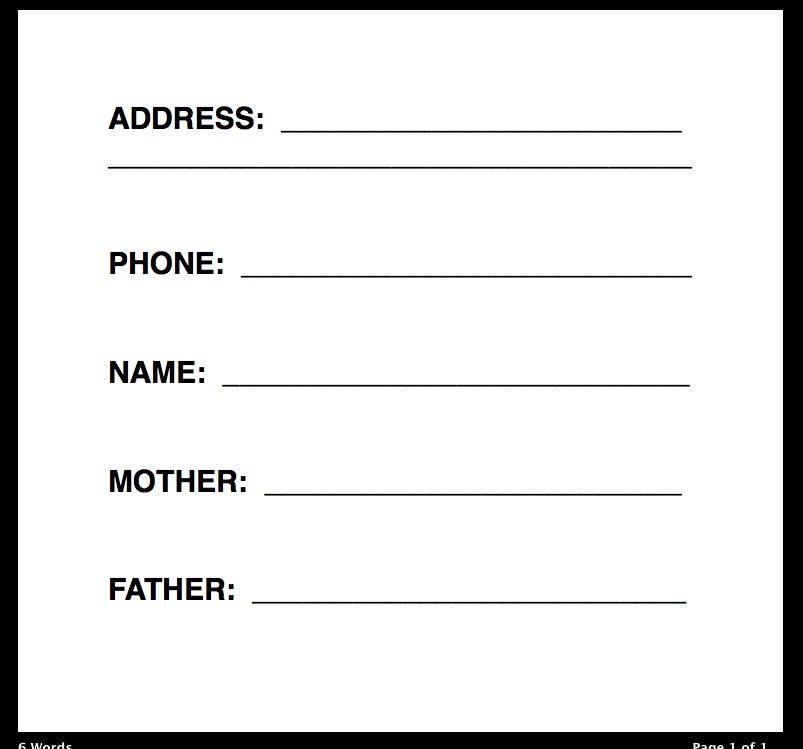 Form 3 Form 3 |
In the images above, note the different ways you can ask children for their personal information. Vary the order in which the questions are asked, and vary the wording. Change it up in different ways to help them generalize this skill.
4. Have Other People Ask the Questions
Once children have learned their personal information, have other people ask the questions.
They may be able to answer the questions when you ask, but not know what to say when a police officer is trying to help them. A different person asking the questions can throw them off, much like asking questions in ways they aren’t used to can be confusing.
Having friends and family members ask will help to ensure that they will be able to answer the questions in an emergency, when a police officer or other stranger will need to know their personal information.
Keep Reviewing This Information
I recommend that we teach personal information every day or at least most days until they learn it really well.
Once they have mastered this, you can review it once a week or once a month. How often you review it depends on how much practice you think they need.
But just make sure you do review it once in a while. You don’t want them to forget such important personal information that could save their lives.
At the same time, make sure they understand that they should not share this information with everyone. Try to help them learn that they should only share this with people who need to know it or in the event of an emergency.
We can hope and pray that such an emergency will never happen. But as the saying goes, “Expect the best, but prepare for the worst.”
Knowing our children are prepared for such a crisis is vital for our own peace of mind, but most importantly, for their safety.
* Creative Commons license and Disclaimer of Warranties

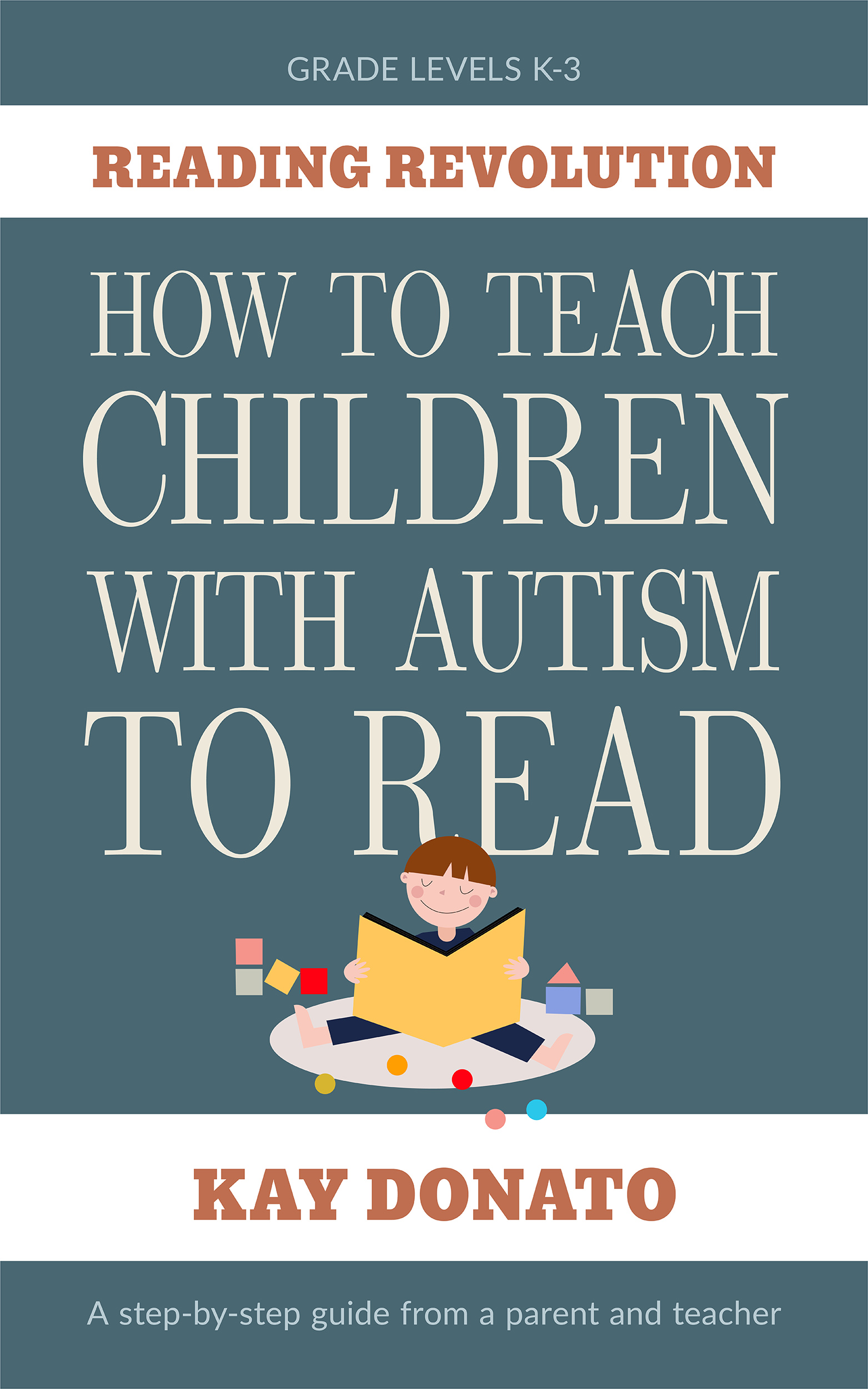
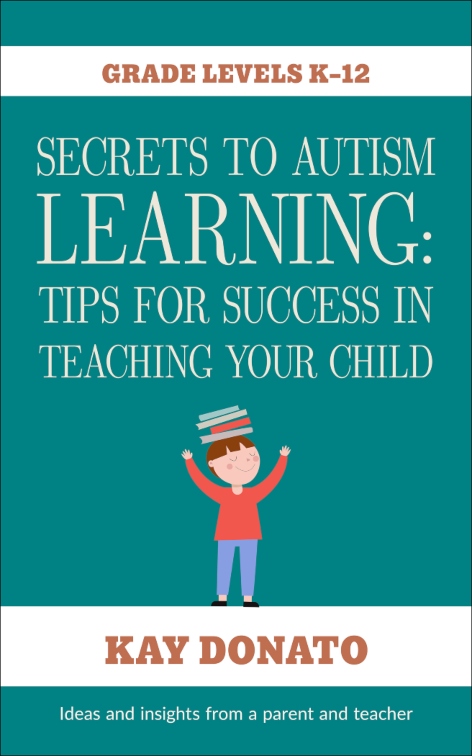

New! Comments
Have your say about what you just read! Leave me a comment in the box below.